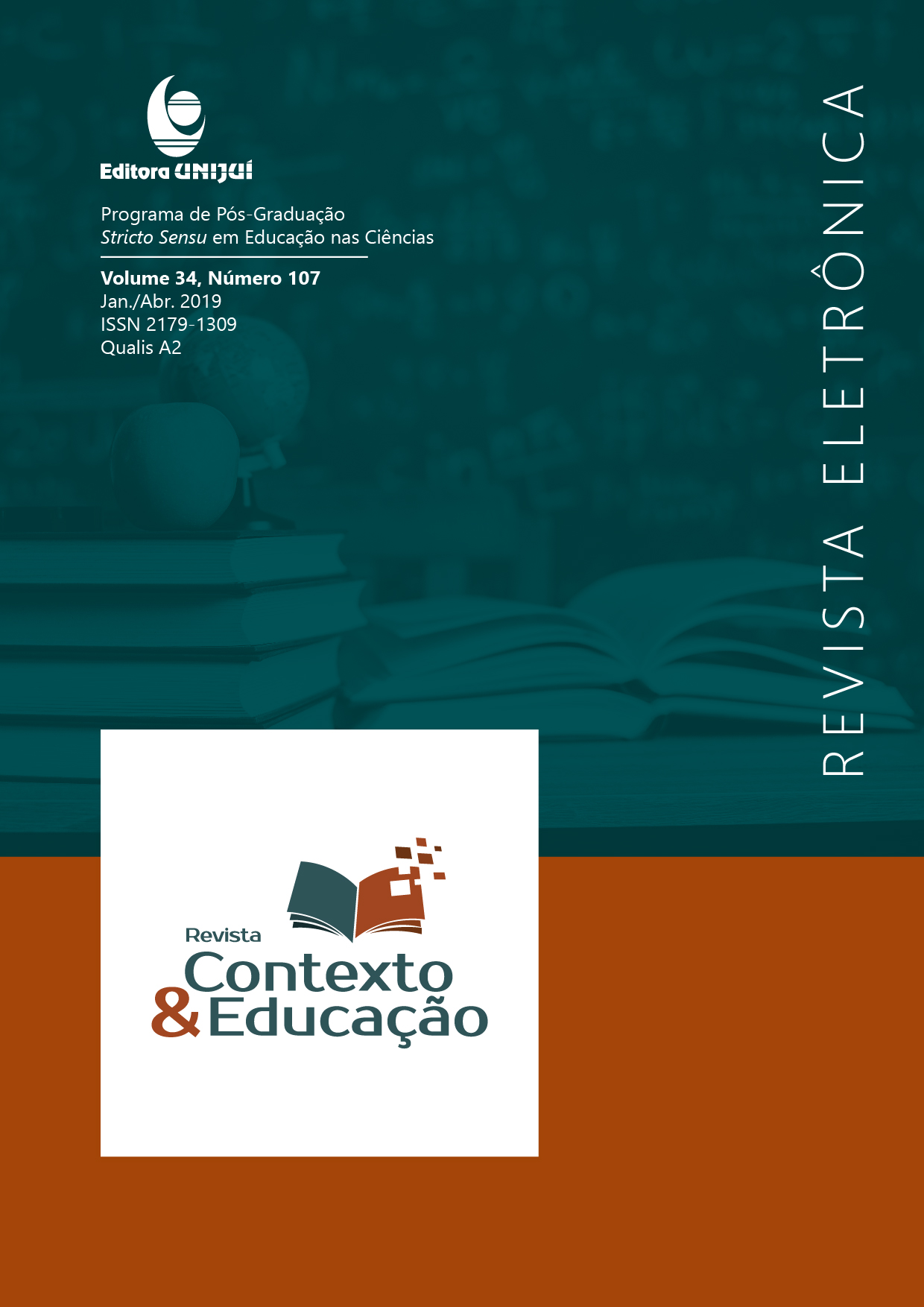CULTURA SURDA E ASTRONOMIA: INVESTIGANDO AS POTENCIALIDADES DESSA ARTICULAÇÃO PARA O ENSINO DE FÍSICA
DOI:
https://doi.org/10.21527/2179-1309.2019.107.154-173Abstract
Este trabalho apresenta uma investigação acerca da potencialidade do tema: Astronomia no processo de ensino-aprendizagem de Física para surdos, bem como das contribuições apresentadas pelas Tecnologias Digitais da Informação e Comunicação (TDIC). Para contribuir com a análise elaborou-se um minicurso em Língua Brasileira de Sinais (Libras), aliada ao uso de TDIC, que foi implementado durante a Semana Acadêmica Integrada da Universidade Federal do Pampa. Como instrumento de análise foi elaborado um questionário online para ser respondido pelos participantes após o minicurso. Trata-se de uma abordagem de cunho qualitativo com viés na análise de conteúdo. Concluiu-se que o conhecimento da Libras e da Cultura Surda são indispensáveis para o planejamento de estratégias de ensino-aprendizagem e para a inclusão e a permanência dos sujeitos surdos na escola. Quanto ao tema: Astronomia, pode-se afirmar que o uso de TDIC como os softwares Stellarium e Celestia, bem como a adaptação e criação de sinais favorecem o processo de ensino-aprendizagem, despertando o interesse dos envolvidos e possibilitando maior compreensão acerca desta temática.
Downloads
Published
How to Cite
Issue
Section
License
By publishing in Revista Contexto & Educação, authors agree to the following terms:
All works are published under the Creative Commons Attribution 4.0 International License (CC BY 4.0), which allows:
Sharing — to copy and redistribute the material in any medium or format;
Adaptation — to remix, transform, and build upon the material for any purpose, even commercially.
These permissions are irrevocable, provided that the following terms are respected:
Attribution — authors must be properly credited, a link to the license must be provided, and any changes made must be indicated.
No additional restrictions — no legal or technological measures may be applied that legally restrict others from doing anything the license permits.
Notices:
The license does not apply to elements that are in the public domain or covered by legal exceptions.
The license does not grant all necessary rights for specific uses (e.g., image rights, privacy, or moral rights).
The journal is not responsible for the opinions expressed in the articles, which are the sole responsibility of the authors. The Editor, with the support of the Editorial Board, reserves the right to suggest or request modifications when necessary.
Only original scientific articles presenting research results of interest that have not been previously published or simultaneously submitted to another journal with the same purpose will be accepted.
Mentions of trademarks or specific products are intended solely for identification purposes and do not imply any promotional relationship by the authors or the journal.
License Agreement (for articles published from October 2025): Authors retain the copyright to their article and grant Revista Contexto & Educação the right of first publication.


